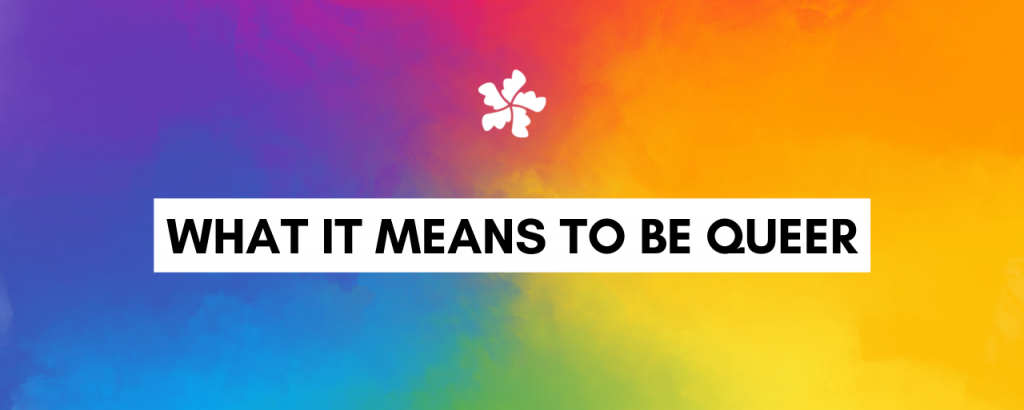“What does it mean to be queer?” That’s a question that has crossed my mind innumerable times over almost the past decade of my life, ever since I started wondering about how I was “different” from the other people around me. And everytime I have asked myself this question, the answer has never quite been […]

“What does it mean to be queer?” That’s a question that has crossed my mind innumerable times over almost the past decade of my life, ever since I started wondering about how I was “different” from the other people around me. And everytime I have asked myself this question, the answer has never quite been the same. The more I discover about myself, the more I hear stories of other queer people, I learn that there’s several more layers to my previous understanding. A whole new dimension pops up in my mind’s eye, allowing me to perceive and acknowledge even more systems and intersectional elements in play.
This time when I answered this question, it wasn’t just queerness that I was questioning; it was also neurodivergence, and my mental health. I realized the lens through which I view these things now has changed fundamentally, and in many ways, are also surprisingly similar to each other. One of these fundamental changes is how I relate to labels. Over the years, I’ve used many different labels for many different reasons, and to some extent, they have all been helpful. But before the past couple of years, one thing was common to all these labels – they told me (and others around me) how I might be different from other people. So far, in my mind, that has been the point of a label – recognizing, acknowledging, and embracing differences.
But I no longer see them that way. I do not view them as “traits” of my individuality or markers of my self-expression, designed to help me find my place amongst people. This, I think, has arisen from my view of the concept of individuality by itself. Over the course of queer movements and discourse, we have seen multiple waves of how people think queerness is and should be defined. Not too long ago, it was a popular idea for queerness to be restricted, categorized, and labeled based on oppression, and oppression alone. How oppressed you are, would in turn define how queer you are; naturally, this led to what was termed as an “oppression olympics”, with queerness becoming some sort of competiton. This has been rightfully called out for how harmful and useless of a practice it is. The idea of queerness as a celebration of uniqueness and diversity has since taken over, which is undeniably a positive movement.
On the other hand, though, this seems to have resulted in widespread hyperindividualism, leading to queerness being just another box to put yourself into; whereas the essence of queerness, at least as I understand it currently, is the opposition to the idea that there needs to be boxes. This leads back to my thoughts about labels. Labels, at the outset, might seem like these “boxes” that I’m so against. Nevertheless, I found them incredibly helpful the various times I’ve used them. So what is it about them that helps me, if it isn’t the superficial “categories” they seem to represent?
For this, my current answer is that the point of labels is not to acknowledge differences amongst people. Rather, it is to identify and embrace conflict with the dominant belief and idea that there is a “standard” for how people are. Labels exist to decry the existence of such a rigid template for human experience. In other words, I’d say that labels as I see them now answer an entirely different question than I thought they did. Instead of asking myself “How are you different from other people?”, I am instead asking “In what ways does the standard idea of love/sex/gender/attraction/etc not apply to you?”. This question, I believe, is one I think every single person should try to answer, whether they consider themselves queer or not; because I can guarantee that no one fits that standard template perfectly. No one is unaffected by this rigidity. No one is “normal”.
Writer: Naveen